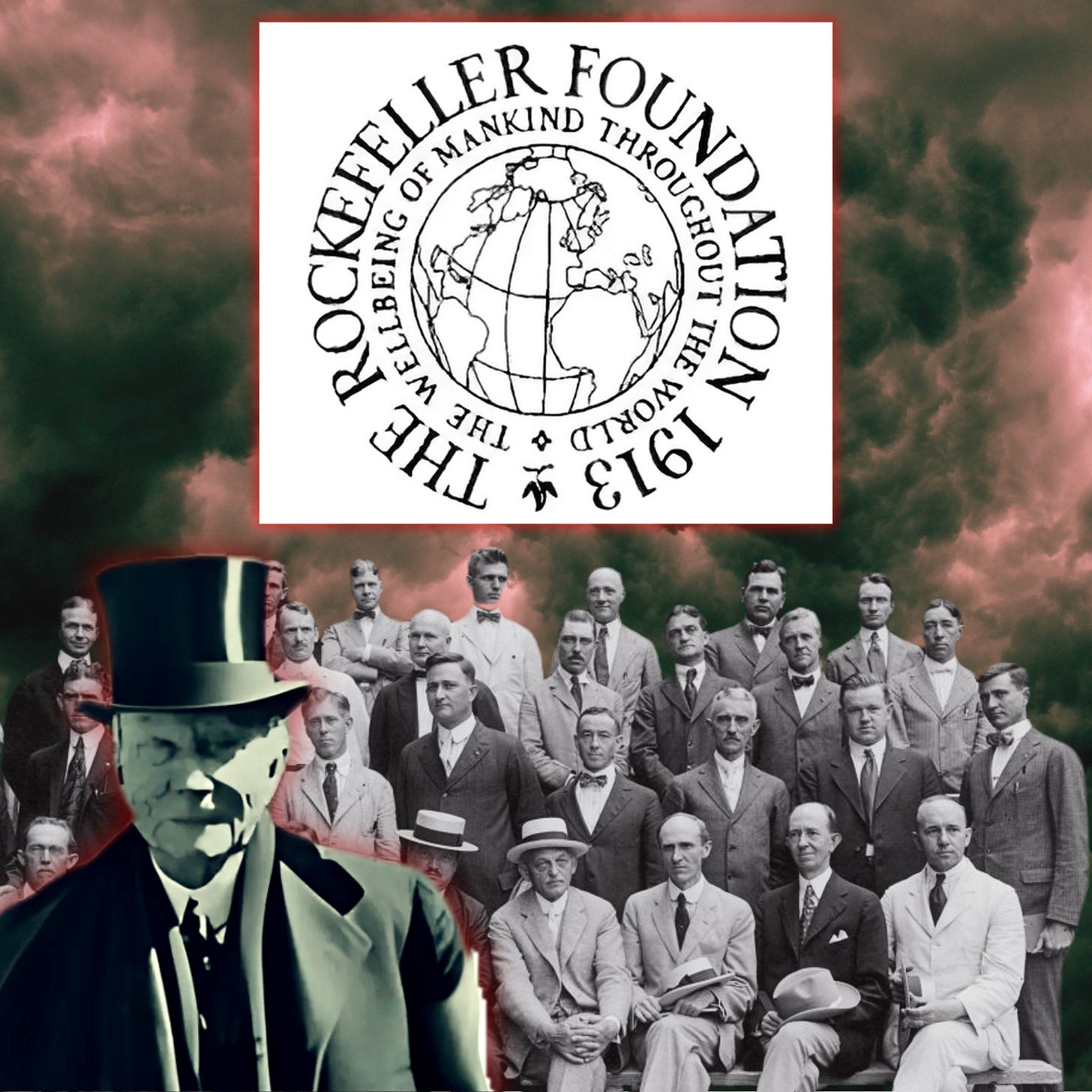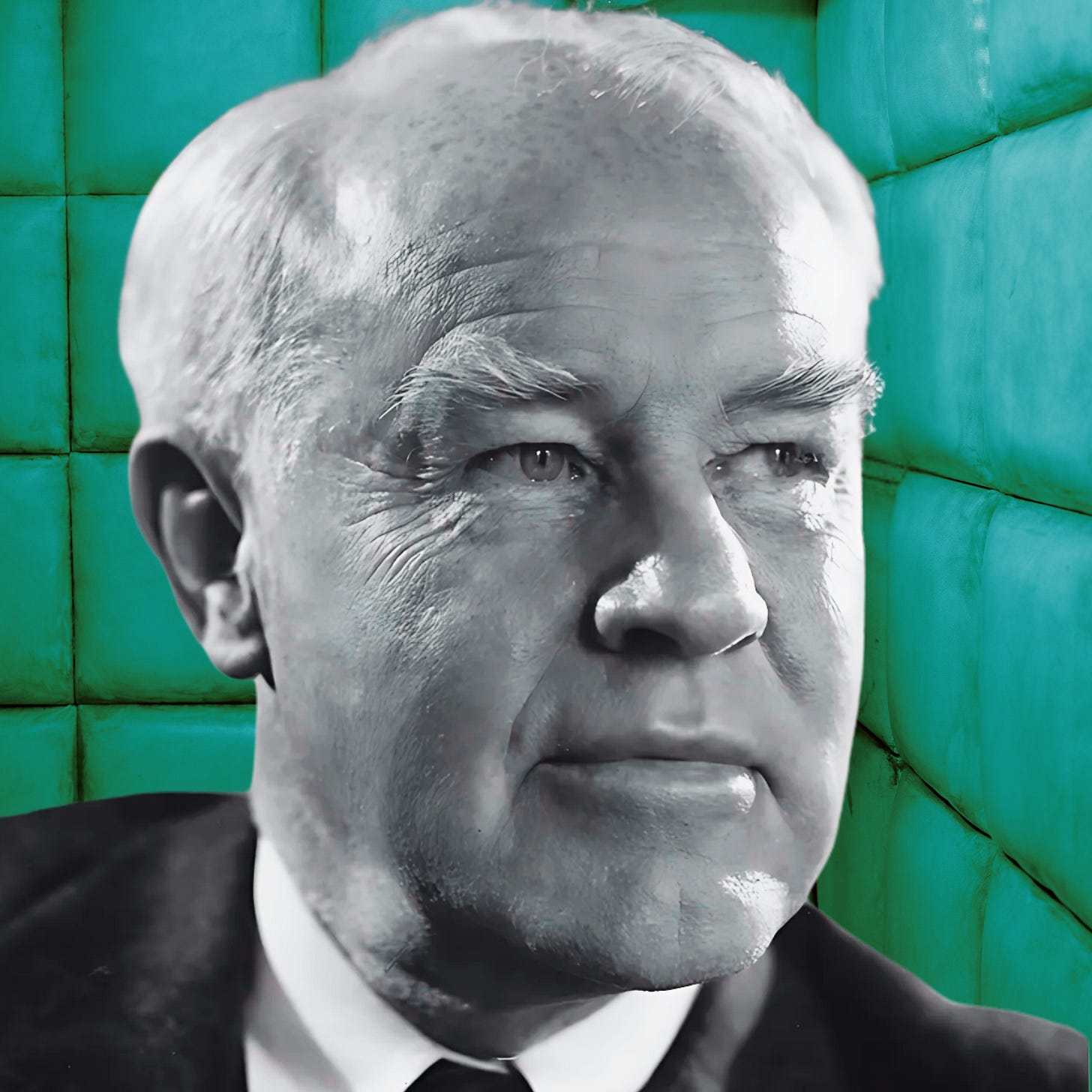I’ve done several shows and written extensively on my Twitter threads regarding the inception of the field of psychology, social science and the Rockefeller takeover of medicine via the Flexner report, but I was recently asked to shed light on the field of psychiatry. For those who may not be familiar here is a brief overview of how Allen Gregg who worked for the Rockefeller’s played a significant role in creating the field of Psychiatry to expand the Rockefeller’s petroleum monopoly on petrochemical- pharmaceuticals and extend the Flexner report to encompass psychiatry as a field.
Psychiatry is the drug pushing big pharma wing of the fraudulent occultist created sister field of psychology. We’ll save that for another day, because I’ve done so many threads and shows on the subject already. It suffices for now to say the entire field of social science was largely predicated on esotericism to create secular solutions to spiritual problems. Wilhelm Wundt, known as the grandfather of psychology believed humans were devoid of a soul and could essentially be trained like lab rats. Psychiatry is a field where drugs do the training. I will caveat to say that of course I don’t mean to imply that the field has never served anyone. There’s plenty of people who have benefited but the historical facts remain. Freud was inspired by Kabbalah and tantra, while Jung was a Mithrian. Psychiatry however exists today because the Rockefeller’s saw an opportunity to expand their petroleum monopoly via petrochemical/ pharmaceuticals.

The Rockefeller family's involvement in funding psychiatry was part of a broader strategy to invest in medical sciences, particularly during the early to mid-20th century. In the late 1920s, the Rockefeller Foundation created the Medical Sciences Division, which emerged from the earlier Division of Medical Education. This division was instrumental in funding various aspects of medical research, including psychiatry.
Dr. Alan Gregg, who became the Director of the Medical Sciences Division in 1930, played a pivotal role in steering Rockefeller funds towards psychiatry. His vision and leadership were crucial in the allocation of these resources.
Grants were provided to institutions like the Institute for Psychoanalysis in Chicago in 1935 and 1938, as well as to McGill University and the University of Chicago for psychiatric research and teaching. The Foundation aimed to improve psychiatric teaching in medical schools, build research centers, and enhance psychiatric practices in various settings like hospitals and social work.
At the time, psychiatry was not seen on par with other medical specialties. The Rockefeller Foundation sought to elevate the field to the status of a legitimate medical science. This was done through funding teaching and research in psychiatry, they aimed to integrate psychiatry into standard medical curricula and practice.
The Foundation believed in the potential of psychiatry to contribute to medical science through research into mental health and disorders.
Funding paved the way for social control, aiming to manage or shape public behavior and societal norms through psychiatric practices.
After World War II, largely thanks to the Tavistock Institute of Human Relations, the focus on mental health intensified, as WWI they used the excuse of the traumatized soldiers to conduct shell-shock therapy research, WWII convinced the public that everyone was now a patient due to the mass scale traumatic impact on not only soldiers but civilians as well. This period saw an increase in the legitimacy and funding for psychiatric research as part of broader public health initiatives.
The Rockefeller Foundation's involvement in psychiatry also included funding research into eugenics, which has since been criticized and associated with some of the darkest aspects of 20th-century science, particularly with connections to Nazi Germany's eugenics programs.
Through these efforts, the Rockefeller Foundation significantly shaped the development of psychiatry in the United States and beyond, contributing to its recognition as a medical science while also embedding it within broader societal and economic frameworks.
Dr. Alan Gregg, who became the director of the Medical Sciences Division at the Rockefeller Foundation in 1930, was instrumental in convincing the Foundation to invest in psychiatry.
Gregg emphasized the neglect of psychiatry within the medical community and its potential if properly invested in. He pointed out the economic and social costs of mental health issues, arguing that psychiatry could significantly reduce these burdens. He advocated for improving psychiatric education within medical schools, arguing that psychiatry was essential for comprehensive medical training. This included proposals for increasing psychiatric residencies and integrating psychiatry into the medical curriculum.
Gregg built relationships with key figures in psychiatry, such as Adolf Meyer, who was influential in shaping American psychiatry. These alliances helped in presenting a united front for the need to fund psychiatric research and education.
Gregg saw WWII as an opportunity to integrate psychiatry more fully into medicine, responding to a pressing societal need.
Gregg's vision was of a progressive, evolving medical science where psychiatry could play a pivotal role. He saw the Rockefeller Foundation's involvement as a way to catalyze this evolution, moving psychiatry from the fringes to the center of medical education and practice.
It’s worth noting Gregg trained both at Yale and John’s Hopkins which have huge ties to the Russell clan, Leipzig connection and founding of the entire filed of psychology and social science itself. Additionally Simon Flexnor also worked with the Rockefeller’s in overlapping capacities. Simon Flexner was the director of the Rockefeller Institute for Medical Research (which later became Rockefeller University), a position he held from 1903 to 1935. Allen Gregg joined the Rockefeller Foundation in 1919, initially working with the International Health Board before moving into roles that dealt more directly with medical science and education. Allen Gregg essentially extended the work of the Flexner Report of 1910 to encompass the field of psychiatry.






